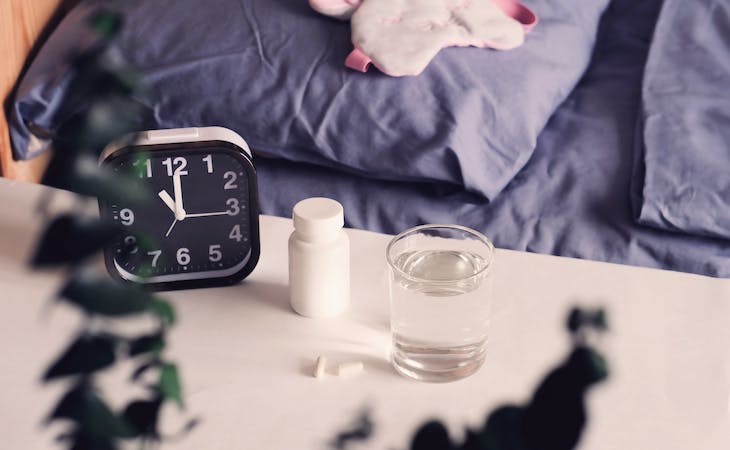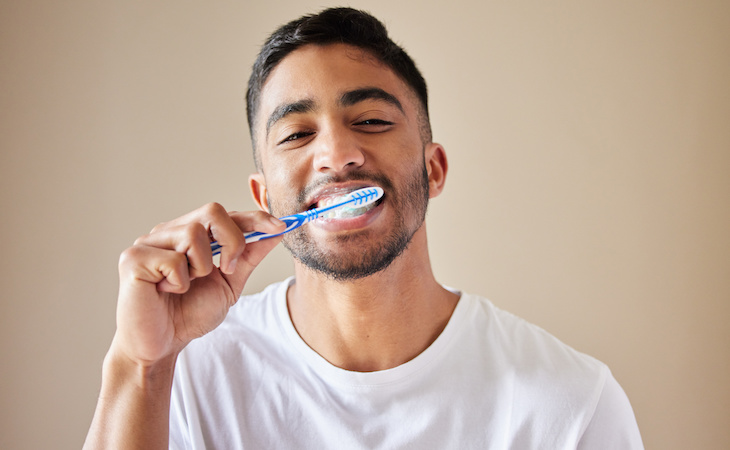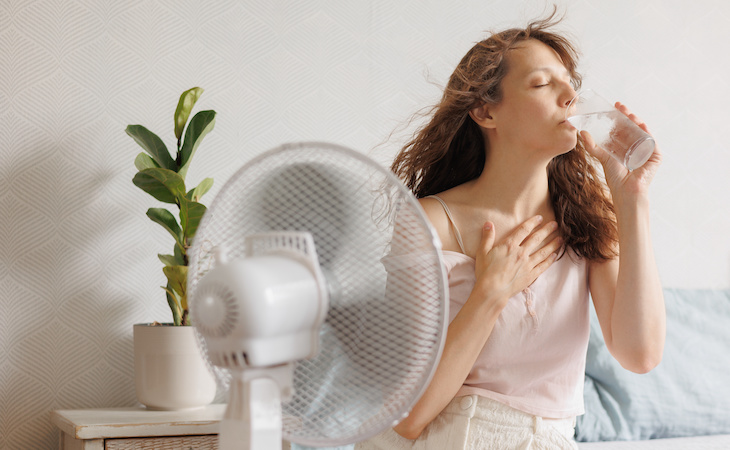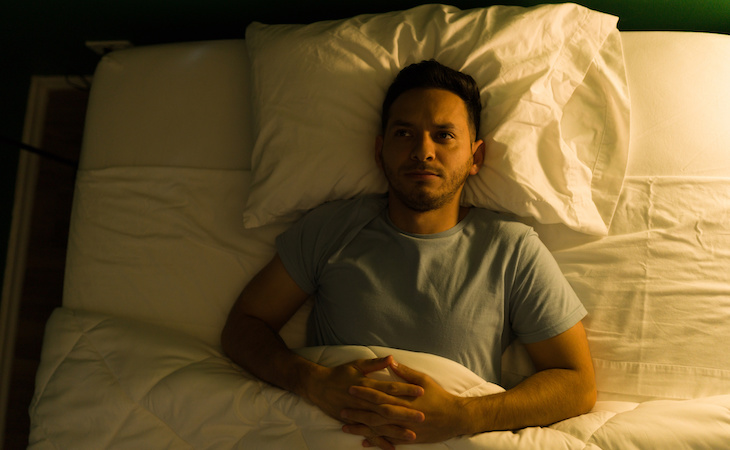Getting good sleep is key for your overall health. But it’s not just how many hours of sleep you get each night that’s important—the quality of that sleep is also key for maintaining your well-being.
Luckily, there are some natural sleep aids out there for when you need that extra push. Below, we explore the most effective natural sleep aids and what you need to know before trying them so you can catch more Z’s.
What are the best natural sleep aids?
While there are many natural sleep aids to choose from, we’re exploring the top 10 options with a rundown of how they work, how much you should take, and any side effects and safety precautions you should be aware of.
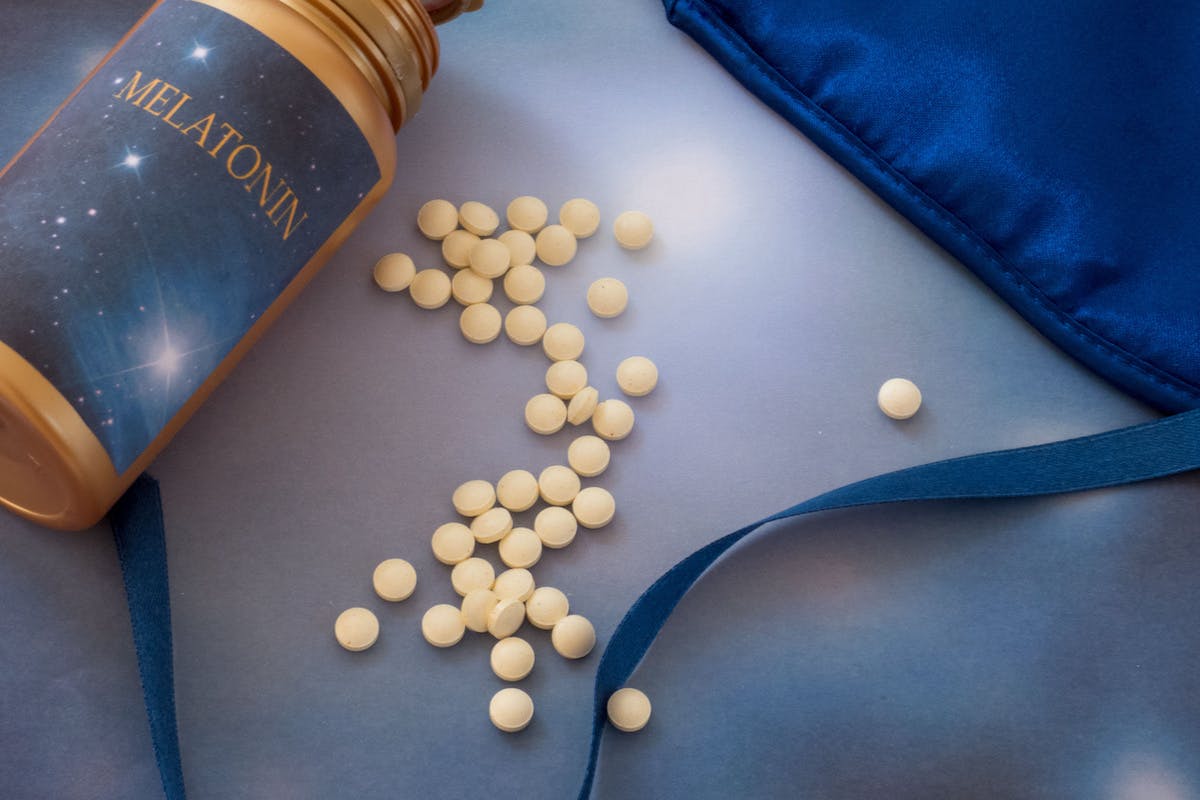
1. Melatonin
Melatonin is one of the most popular natural sleep aids out there—and interestingly enough, our bodies naturally produce it.
Everyone has a circadian rhythm—an internal clock that controls our natural sleep. In the dark, your body produces melatonin (a hormone) to help prepare you for sleep, while in the light, your body halts melatonin production so you remain alert (which is why sunshine in the morning wakes you up).
Complete darkness isn’t easy to achieve since light sources can stem from your window, television, and hand devices and inhibit melatonin production. For this reason, melatonin supplements are available as capsules, liquids, sprays, or gummies to help stimulate sleepiness.
According to Rise Science, an app and tracker for improving sleep, melatonin has effectively helped treat sleep disorders like insomnia. However, it’s meant to be used as a short-term treatment in low dosages.
Experts typically recommend taking somewhere between.3 to 5 mg to help regulate your sleep/wake cycle and improve insomnia. The amount that works best for you will vary by individual, so make sure to work with a medical professional to find the right dosage.
And while melatonin is generally thought to be safe for short-term use, know that some side effects can occur, including headache, dizziness, drowsiness, and nausea. What’s more, too much melatonin can cause vivid dreams. (Here’s what you need to know about OTC sleep aids.)
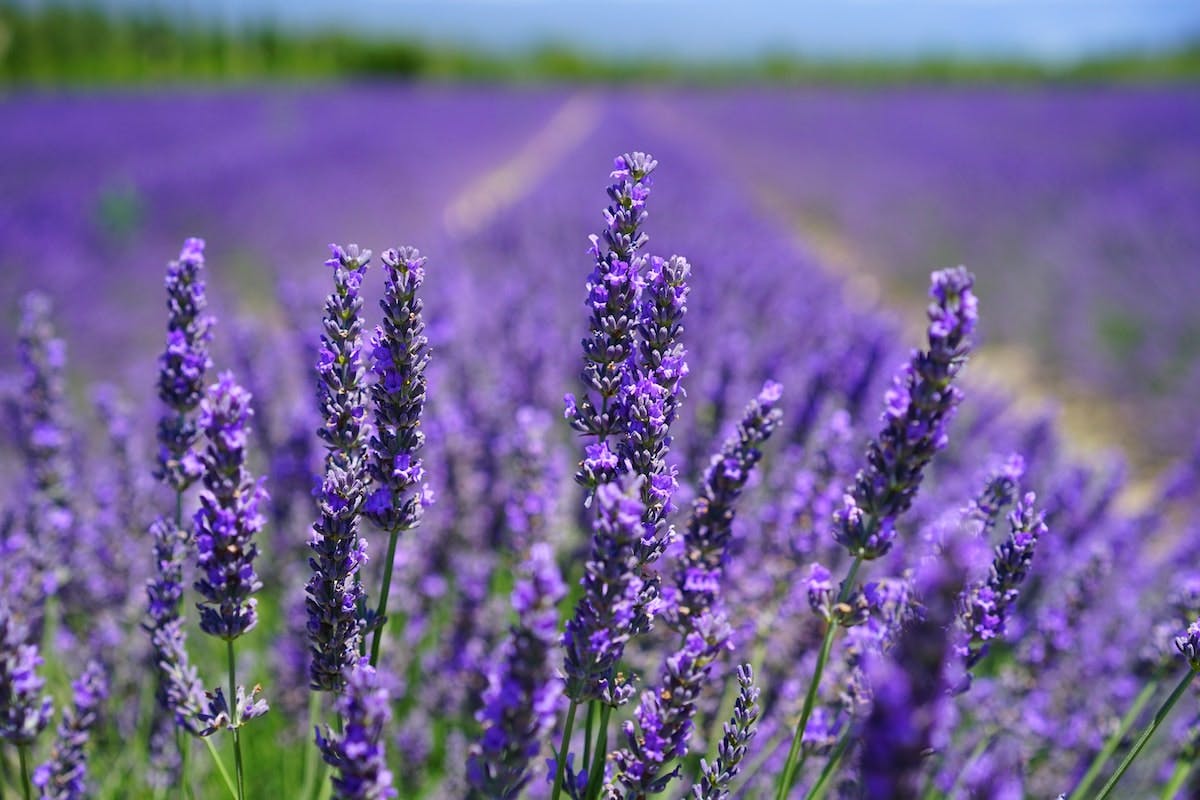
2. Lavender
Lavender is an aromatic plant with many uses and benefits. While most people associate it with beautifully smelling shampoos or perfumes, we like to call it the secret scent of sleep.
Lavender has soothing properties known to improve sleep quality, relax the body, and improve mood. In a 2014 study where patients with major depressive disorder (MDD) consumed lavender oil capsules, the results indicated that the plant reduced MDD (in conjunction with an antidepressant), agitation, anxiety, and insomnia.
The motive behind this study was to find an alternative to taking pharmaceutical medication that would still help reduce these symptoms without causing side effects—and lavender did just that!
Besides capsules, lavender can also be consumed as tea. Lavender oil, on the other hand, shouldn’t be consumed in large amounts or swallowed on its own as it can be poisonous to the body, causing symptoms such as stomach pain, vomiting, and diarrhea.
If you don’t want to ingest lavender, you can inhale it by using a diffuser or spraying it onto your pillow. You can also rub a mixture of the oil with a carrier oil (such as jojoba or coconut) onto your skin—such as on your wrists or behind your ears—before bed.
It’s recommended you mix lavender with a carrier oil and test it out on a small patch of skin before completely rubbing it on large areas since it’s strong and can cause rashes and irritation, especially for those with eczema and psoriasis.
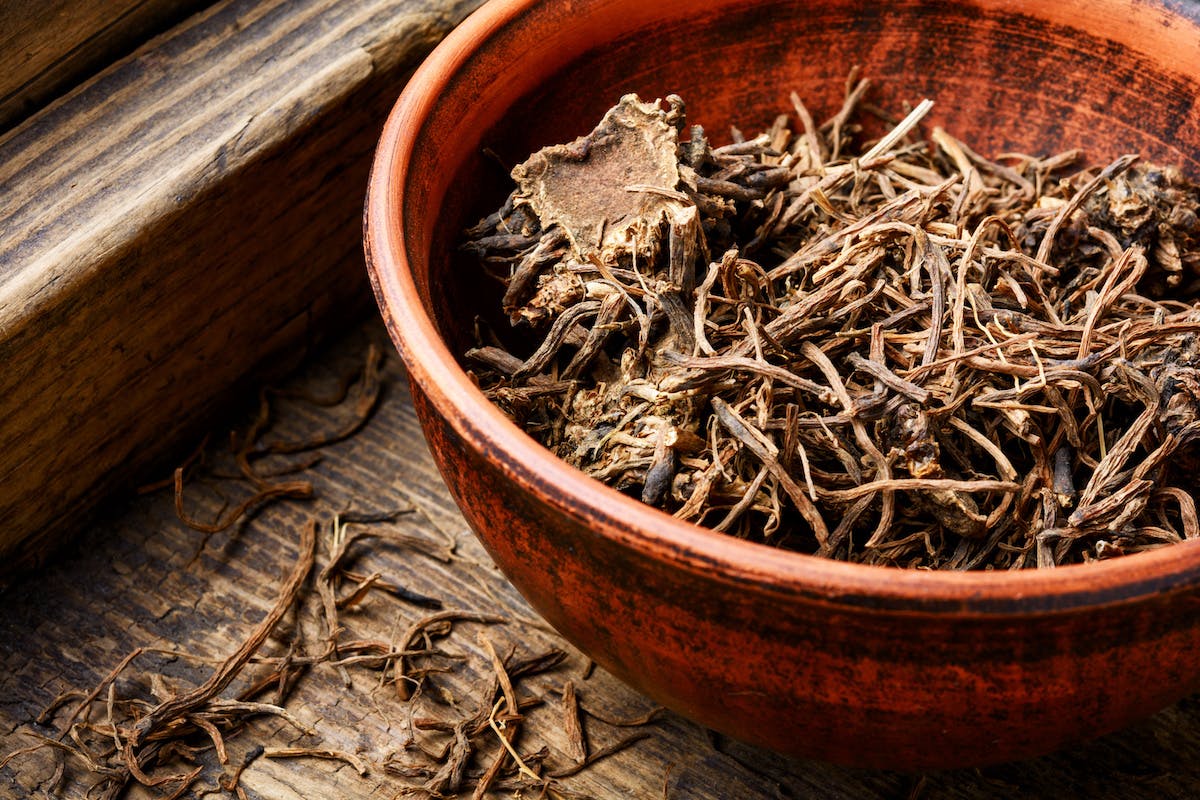
3. Valerian root
Unlike lavender, Valeriana officinalis (also known as valerian root) has a pungent, off-putting scent. Its odor is often compared to stinky cheese or dirty feet—but don’t let that prevent you from exploring its sleep benefits.
Valerian root is typically juiced or freeze-dried to form a powder used for capsules and teas. Consuming the powder is said to ease insomnia, anxiety, nervous restlessness, and even treat stomach cramps.
This is due to the root containing various compounds that increase GABA (a neurotransmitter that regulates nerve impulses in the brain) availability in the body and interact with certain receptors involved in mood and sleep.
In a 2021 study of 39 patients undergoing hemodialysis, each patient consumed either a placebo or a capsule with 530 mg dried valerian root—which was consumed an hour before bedtime for one month. The capsules with valerian root significantly improved sleep quality, symptoms of anxiety, and depression.
While in this study there was a set dosage, other studies have concluded the amount you should take is actually unclear.
According to the Mayo Clinic, “Valerian seems to be most effective after you take it regularly for two or more weeks in the evening. Because dosages varied in studies involving valerian and some studies weren’t rigorous, it’s not clear what dose is most effective or for how long you should take a particular dose.”
Additionally, side effects may occur when consuming valerian root, including headache, dizziness, stomach problems, or sleeplessness.
Therefore, it’s best to avoid driving or operating dangerous machinery when taking it. There also hasn’t been enough research done to determine if it’s safe to use while pregnant, breastfeeding, or for children under 3 years of age.
Valerian root could also potentially interact with other drugs you’re taking. It can increase the sedative effects of depressants, such as alcohol, benzodiazepines, and narcotics, interfere with some prescription medications, and interact with other dietary supplements. (Here’s how sleep patches containing natural sleep aids work.)
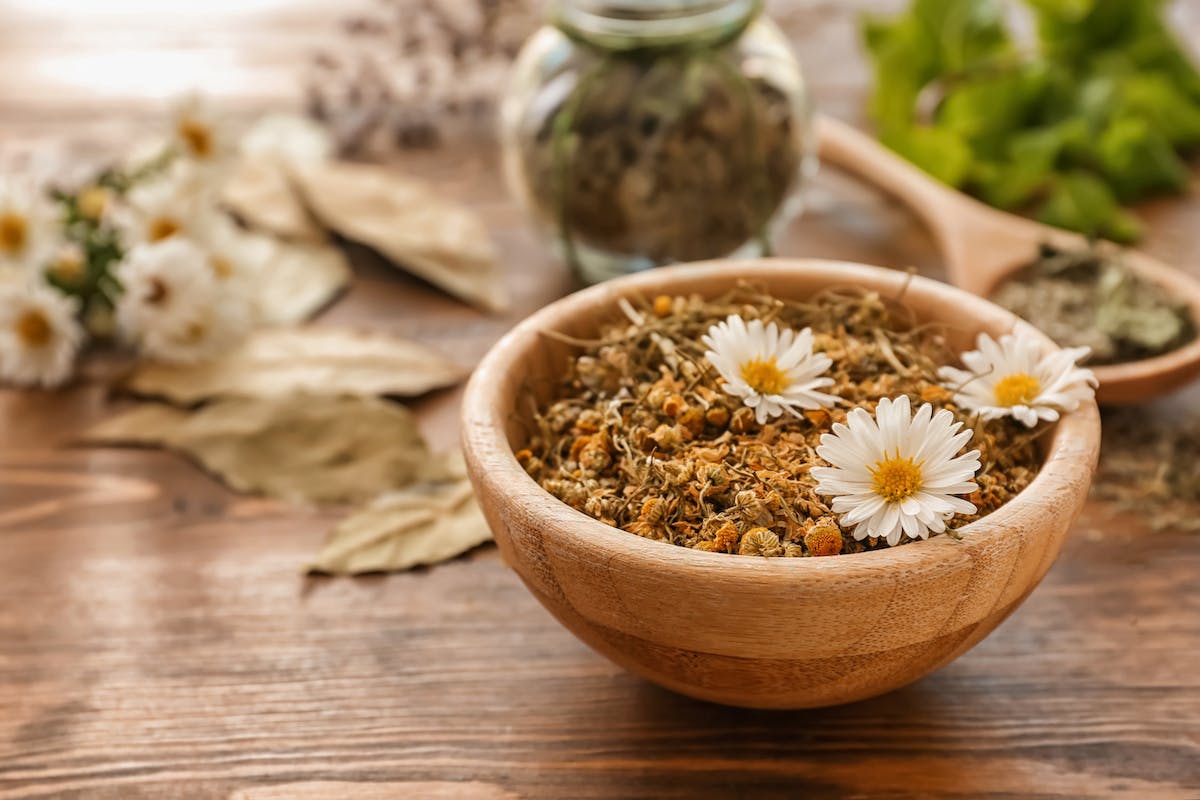
4. Chamomile
At a glance, chamomile is a daisy-like plant that’ll make the perfect centerpiece for your dining room table. But to the medical world, it’s one of the oldest, most popular plants used across the globe for all types of healing.
Chamomile comes in a variety of forms, from extracts to essential oils to teas, and can be used internally and externally on the body.
Though traditionally used for centuries as an anti-inflammatory, antioxidant, mild astringent, and healing medicine, chamomile has become one of the greatest aids for sleep. According to a 2010 study, “Chamomile tea and essential oil aromatherapy have been used to treat insomnia and to induce sedation (calming effects).”
The plant is also “widely regarded as a mild tranquilizer and sleep-inducer” due to its flavonoid content, notes the study. “Apigenin is a flavonoid that binds to benzodiazepine receptors in the brain, which has a sedative effect,” adds Medical News Today.
Although the science behind chamomile’s effect on your body sounds complicated, using it is quite easy. Simply brew one cup of chamomile herbal tea approximately 45 minutes before bed and sip on it as you prep yourself for sleep. Unlike green or black tea, it has no caffeine, making it the perfect hot drink to relax you for bed.
In terms of side effects, there’s a relatively small amount of people who are sensitive to it or experience allergic reactions. Chamomile isn’t considered a toxic or poisonous plant—and it’s even listed on the Food and Drug Administration’s GRAS (Generally Recognized As Safe) list.
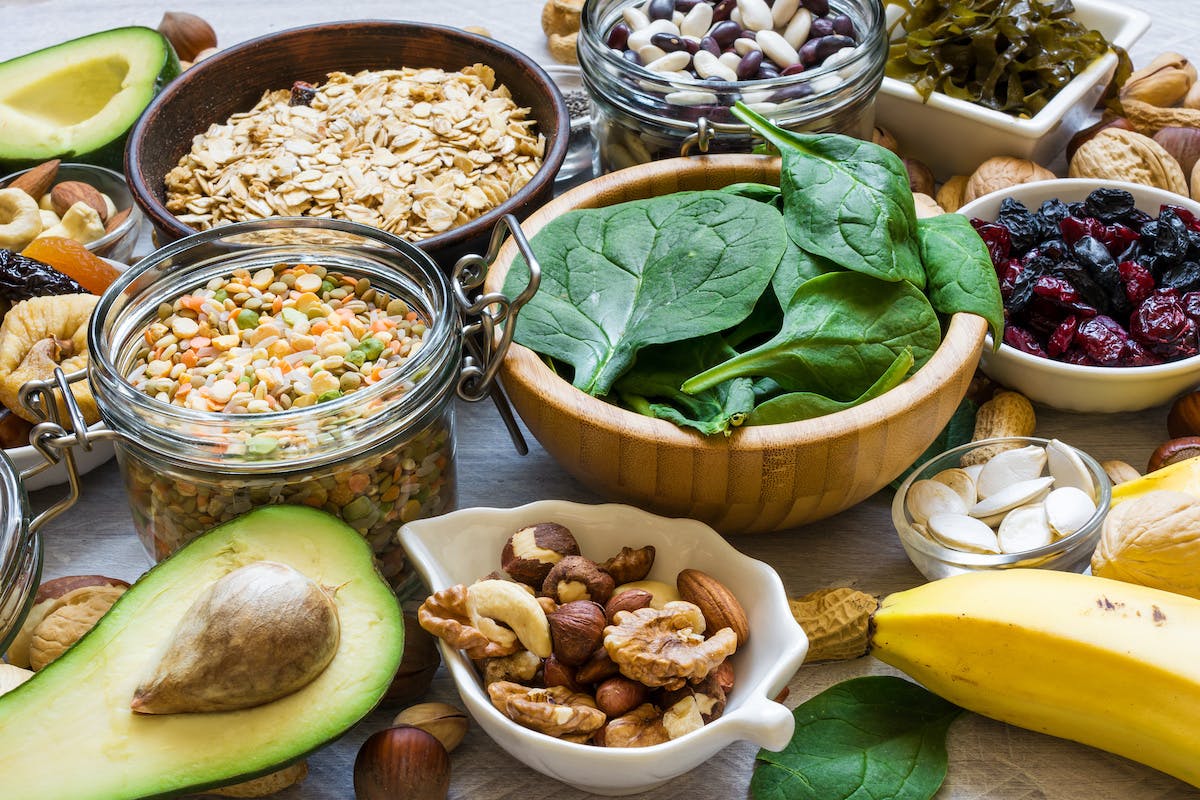
5. Magnesium
Magnesium is a mineral our body uses in more than 300 enzymatic reactions—from muscle contraction to blood sugar control to protein production. More importantly, magnesium is a sleep-inducing nutrient, helping relax your muscles and calm your body.
Magnesium directly works with neurotransmitters that help us sleep. Magnesium balances GABA (which calms) and glutamate (which excites) in the body. An excess of glutamate can contribute to anxiety or restlessness.
The mineral is also a natural muscle relaxer—assisting with aches and pains each night that could impede your sleep—and it improves and regulates melatonin production.
Since magnesium is an essential mineral, it’s crucial to prioritize magnesium-rich foods in your diet. These foods include nuts and seeds (pumpkin seeds, roasted almonds, and roasted cashews); legumes (black beans, edamame, and lima beans); fiber-rich whole grains (quinoa and shredded wheat); dairy (non-fat milk and low-fat yogurt); spinach; and dark chocolate.
Besides magnesium-rich foods, magnesium supplements are also an option. Although there are many types of magnesium supplements to choose from, David Leopold, MD, of Hackensack Meridian Health, recommends magnesium glycinate and magnesium citrate specifically for sleep and anxiety.
Lastly, although too much magnesium from magnesium-rich foods doesn’t pose an issue for adults, too much magnesium from supplements can. According to the Mayo Clinic, “High doses of magnesium from supplements or medications can cause nausea, abdominal cramping, and diarrhea.”
Magnesium supplements can also interact with antibiotics and other medications you’re taking.
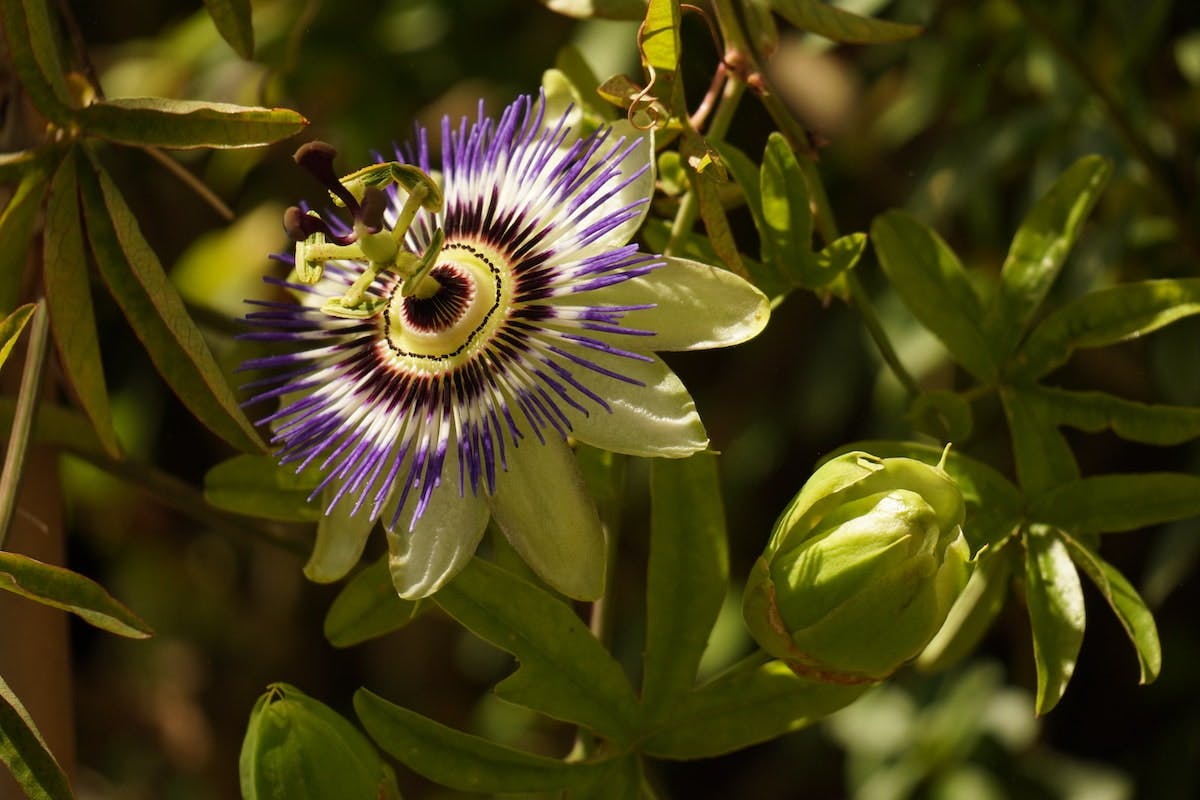
6. Passionflower
Passionflower vine has been used as a sedative by the native people in the Americas since the 16th century. The flowers, stems, and leaves of the passionflower can be used and prepared as infusions, tinctures, extracts, and teas.
Researchers haven’t extensively studied the effects of passionflower, so the information we do have is limited. Still, this data can give us an idea of how the vine promotes sleepiness.
For instance, an article by Mount Sinai states that “scientists believe passionflower works by increasing levels of GABA in the brain. GABA lowers the activity of some brain cells, making you feel more relaxed.”
One study supporting these claims found that taking passionflower extract can improve sleep time and efficiency in adults with insomnia. Another study found that drinking passionflower herbal tea can temporarily improve sleep quality in healthy adults with mild sleep issues.
Nonetheless, only a few studies have been done to test the vine’s effects on insomnia and anxiety specifically. Passionflower also has milder effects compared to other herbs like the valerian root, so it’s often combined with these calming herbs. That makes it even more difficult to spot its independent benefits.
In terms of safety, the National Center for Complementary and Integrative Health warns that dried alcoholic extract of passionflower may cause drowsiness, confusion, and uncoordinated movement in some people.
Moreover, passionflower consumed in excessive amounts may be unsafe. It shouldn’t be used during pregnancy as it may induce uterine contractions—and whether it’s safe for breastfeeding people is unknown.
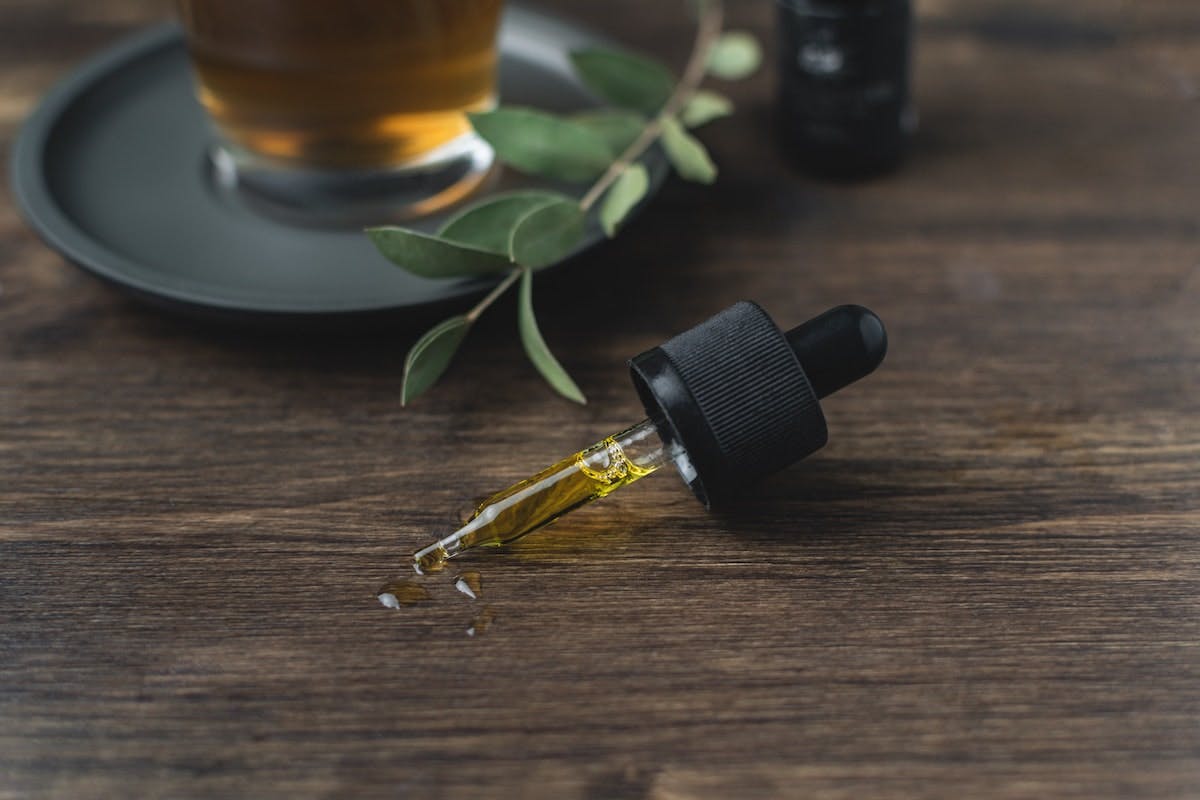
7. CBD
Cannabidiol (CBD) is a highly recognized chemical compound found in cannabis and hemp plants.
It’s non-psychoactive, meaning it interacts with different receptors in your body to relax you—but it doesn’t get you high like tetrahydrocannabinol (THC), another prevalent compound found in both plants.
CBD comes in various forms, such as oils, extracts, capsules, patches, vapes, and lotions or ointments for your skin. It’s mostly derived from hemp plants as they contain more CBD and less THC, but it can also be made synthetically in a lab.
Although research on the effects of CBD on sleep is still in its early stages, what’s been discovered so far is that it may help reduce anxiety, induce sleepiness, and keep you asleep—and people aren’t hesitating to test it out!
“In the last year, maybe due to the pandemic, we have seen a dramatic increase in the number of people coming in for sleep problems,” says Chris Morenza, owner of Your CBD Store in Miami. “Many of our customers are using our CBD and CBN [cannabinol, a weaker version of THC] products to get a better night’s sleep.”
CBD interacts with your endocannabinoid system and influences the activity of neurotransmitters, hormones, and other cells in your brain and body. By binding to receptors like GABA and serotonin, CBD can help relax your body and decrease anxiety.
One study regarding the relationship between cannabis, cannabinoids, and sleep found that CBD can help people who struggle with REM sleep behavior disorders and excessive daytime sleepiness. However, contrasting research claims CBD doesn’t have much of an effect on the sleep cycles of healthy individuals.
CBD use can also pose some health risks. Although it’s often well-tolerated, CBD can cause side effects like dry mouth, diarrhea, reduced appetite, drowsiness, and fatigue.
It can also interact with other medications you’re taking, such as blood thinners. And there’s no telling how safe it is for pregnant or breastfeeding people.
Plus, CBD isn’t FDA regulated, so if you do decide to consume it in any form, be mindful of your product’s source and how it’s used.
“Since everyone is different, we always recommend starting with a low dose and gradually increasing it,” says Morenza. “Try different forms and types of products to find the one that best works for you.”
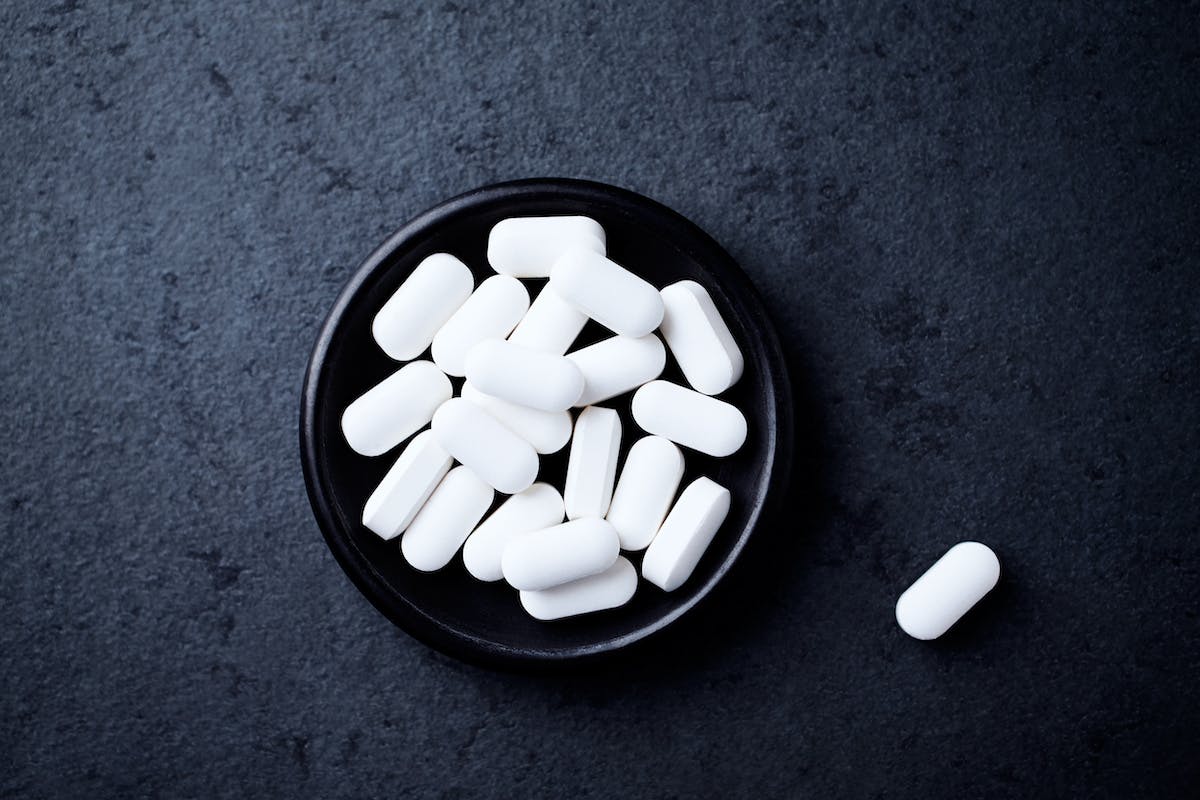
8. GABA
GABA has made many guest appearances throughout our exploration of natural sleep aids. As we’ve mentioned before, GABA is an inhibitory neurotransmitter in our bodies that controls nerve cell hyperactivity.
It slows down the brain by blocking specific signals in your nervous system. It also produces a calming effect, helping reduce feelings of anxiety, stress, and fear.
While our bodies naturally contain GABA, it can be found in foods—such as kimchi, tempeh, mushrooms, and sweet potatoes—and in teas like green and oolong tea. GABA is also available as a dietary supplement.
Despite being able to consume GABA-rich foods and supplements, most studies believe this type of GABA can’t get to your brain as the membrane only allows specific molecules to go through it. Thus, the effects of GABA supplements on your brain and body are unclear.
Only a few studies conducted have confirmed any positive effects of GABA supplements, especially concerning sleep. One study showed patients with insomnia who received treatment with GABA extracted from fermented rice germ had improved sleep quality and sleep efficiency after four weeks.
Nevertheless, you can naturally increase GABA levels in your body by eating more magnesium and exercising. Earlier, we stated magnesium binds and stimulates GABA receptors. Exercising will do the same plus promote neuroplasticity, which can help prevent or better anxiety and depression.
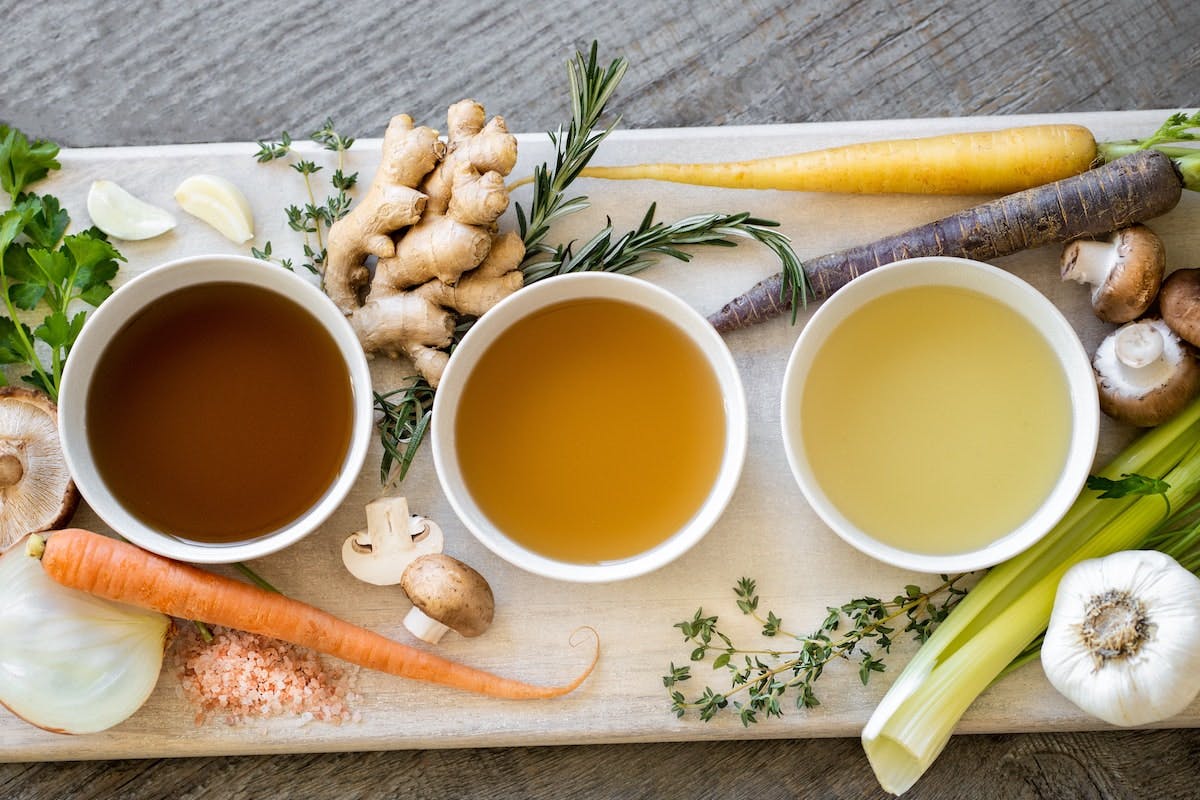
9. Glycine
Similar to GABA, glycine is a neurotransmitter and an amino acid in the spinal cord and brainstem. It participates in the processing of motor and sensory information and can both inhibit or promote excitability in multiple neurotransmitters.
Glycine has been found to improve sleep quality and reduce fatigue in people with insomnia or those who struggle to get adequate sleep.
Some research shows glycine ingestion significantly improved fatigue, liveliness and peppiness, and clear-headedness—overall producing a good feeling the next morning. Moreover, it decreases the body’s core temperature, which causes sleepiness.
Our bodies naturally produce glycine. It can also be found in gelatin, bone broth, meat, seafood, legumes, and dairy and is available as a dietary supplement in powder or capsule form.
Taking glycine supplements may cause disruptions to your metabolism and force your kidneys to work harder. It’s advised that children don’t take glycine supplements as it can cause developmental issues and seizures. Pregnant or breastfeeding people also shouldn’t take glycine supplements.
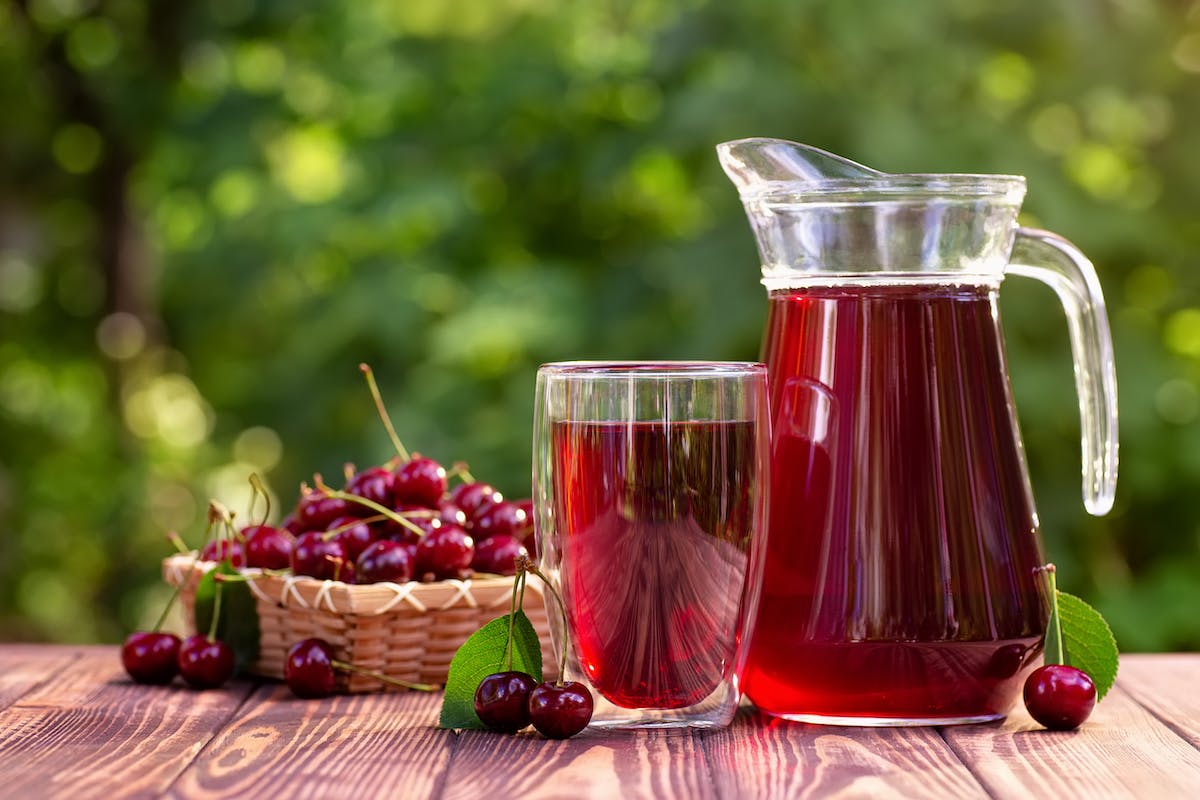
10. Tart cherry juice
Tart cherries—also referred to as sour cherries—are believed to provide a variety of health benefits, from pain relief to muscle recovery to our favorite: sleep onset.
Tart cherries contain high levels of melatonin, the hormone that makes us feel sleepy, and tryptophan, an amino acid that causes fatigue.
Unlike other fruits, tart cherries aren’t usually eaten raw since they’re extremely bitter. Instead, you can consume them dried, frozen, or juiced—though drinking tart cherry juice is the most efficient way to get the nutrients since an eight-ounce glass has about 40 to 60 cherries in it.
One study had participants with insomnia consume either two eight-ounce glasses of a tart cherry juice blend or a placebo each day for two weeks. Those who received the blend slept for an average of 85 minutes longer each night.
However, the study did warn that dosage strategies—including amount, time, frequency, and duration—are equally uncertain, thus more research is needed to accurately understand the effects of tart cherry juice on sleep.
While tart cherry juice is relatively safe, it usually contains high levels of sorbitol, a sugar alcohol that can cause stomach pain and diarrhea. The juice also contains a plant compound called quercetin, which could interact with blood thinners.
Are natural sleep aids safe?
The effects of natural sleep aids vary from person to person. Everything from the brand you purchase to the type of supplement you consume to the amount you take to how often you take it can influence the extent of its effects on you and its safety.
Natural sleep aids aren’t tested or reviewed the same way prescribed medications are—and they aren’t FDA approved or regulated.
Despite there being dependable research to support the claims of some of these sleep aids, popular aids like CBD and valerian root are lacking in large, peer-reviewed studies and trials, so it’s challenging to confirm efficacy.
Still, once you’ve reviewed and understood the facts regarding natural sleep aids, the decision to take them is up to you. If you decide to use a natural sleep aid, here are some precautions that can help prevent or minimize side effects:
- Talk to your doctor. Speak with a medical professional before adding a new supplement to your routine. They can provide guidance, give dosage strategies catered to your medical history, and help decide if a natural sleep aid is helping or hurting you. Moreover, they can recognize potential interactions between medications you’re taking and your sleep aid of choice.
- Read all labels and lists of ingredients. Examining your natural sleep aid can help you detect if it’s a tainted or mislabeled product, avoid ingredients you’re allergic to, and guarantee it’s high-quality. Plus, you can confirm the right dosage amount, directions on how to use it, and any warnings associated with the product.
- Keep track of what you take. Document when you take your natural sleep aid (dates and times), how much you take, and any immediate or delayed side effects.
- Don’t mix different sleep aids. Since they can come with side effects like drowsiness, don’t simultaneously use more than one natural sleep aid. If you feel your current sleep aid isn’t helping you sleep better and you’d like to give others a try, talk to your doctor about how to make that transition, what to consider, and how long you should wait before taking something new.
What to try instead of taking a natural sleep aid
After exploring all things concerning natural sleep aids—the good and the bad—we’d like to reiterate that sleep aids, whether you choose to take them or not, should always be a last resort.
We recommend exhausting your efforts first without sleep aids by changing your lifestyle habits for healthy sleep. If you don’t know where to start, check out these effective methods to get a good night’s rest:
- Limit your exposure to bright lights and screens in the evening
- Be consistent with bedtimes and wake times
- Lightly exercise during the day
- Avoid alcohol and caffeine in the evening
- Practice simple relaxation techniques
- Lower the temperature in your sleep setting
FAQs
What’s the very best natural sleep aid?
There are many effective natural sleep aids available, including melatonin, passionflower, and tart cherry juice—but what works best varies by individual. Talk to your doctor to determine which one will react best with your body.
Do any natural sleep aids work?
Research suggests sleep aids such as lavender and chamomile can help improve sleep quality. However, it’s important to explore the various forms in which they’re sold, the side effects, and understand how they react to your body to find the best option for you.
What is the safest sleep aid to take?
Many natural sleep aids are generally considered safe, but it’s best to consult with your doctor before trying any natural sleep remedy. That’s because some natural sleep aids can interfere with other medications and cause side effects. Sleep aids can also pose risks to pregnant or breastfeeding people as well as children.
How can I naturally stimulate sleep?
If using natural sleep aids seem daunting or uninteresting, consider naturally stimulating your sleep by adding a few simple lifestyle habits into your nightly routine. Examples include keeping your bedroom cool and dark, powering off electronics before bed, and avoiding caffeine in the evening.
Want to learn more about how food impacts sleep? Check out our guide to diet and sleep for all the details.





